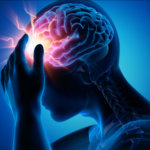Impulsivity is a behavior characterized by a tendency to act on a whim, without careful thought or consideration of the consequences. It can have a significant impact on various aspects of life, including relationships, work, and personal well-being. In this article, we will explore the concept of impulsivity, its connection to the brain, and various strategies for managing it. By understanding and implementing these strategies, you can improve your decision-making skills, enhance your emotional intelligence, and lead a more fulfilling life.
What is Impulsivity?
Impulsivity is the tendency to act quickly and without thinking, often driven by emotions or external stimuli. It is a natural human behavior, but when it becomes a pattern, it can lead to negative consequences. Some common examples of impulsive behaviors include:
- Making hasty decisions without considering the potential outcomes
- Interrupting others during conversations
- Acting on emotions without considering the consequences
- Engaging in risky or harmful behaviors
While some degree of impulsivity is normal, excessive impulsivity can be a sign of an underlying issue or disorder, such as attention deficit hyperactivity disorder (ADHD), borderline personality disorder, or substance abuse.
Impulsivity and the Brain
The brain plays a critical role in impulsivity, with several structures and processes involved in the regulation of impulsive behaviors. The prefrontal cortex, in particular, is responsible for executive functions such as decision-making, impulse control, and emotional regulation.
When a person perceives a threat, the brain’s limbic system, which is responsible for processing emotions, becomes activated. This triggers the release of stress hormones, which prepare the body for the “fight, flight, or freeze” response. During this process, the prefrontal cortex, the area of the brain responsible for rational thinking and impulse control, becomes less efficient.
However, the brain is highly adaptable and can learn to manage impulsivity through experience and practice. This is known as neuroplasticity, and it enables individuals to develop new neural pathways and connections that help regulate impulsive behaviors.
Factors Influencing Impulsivity
Several factors can influence a person’s level of impulsivity, including:
Age
As we age, our brains continue to develop and mature, with neural pathways responsible for impulse control and decision-making becoming more efficient. This is why children and adolescents are often more impulsive than adults, as their prefrontal cortex is still developing.
Genetics
Genetic factors can also contribute to impulsivity, with certain genes associated with an increased likelihood of impulsive behavior. Research has shown that individuals with specific genetic variants may be more prone to impulsivity and related disorders, such as ADHD.
Environment
Environmental factors can also play a significant role in impulsivity. Exposure to stress, trauma, or adverse childhood experiences can impact brain development and contribute to increased impulsivity in later life.
Mental Health
Mental health conditions, such as ADHD, bipolar disorder, and borderline personality disorder, can also contribute to increased impulsivity. These conditions often involve imbalances in neurotransmitters or altered brain structures, which can affect a person’s ability to regulate impulsive behavior.
Strategies for Managing Impulsivity
There are numerous strategies and techniques available for managing impulsivity, ranging from self-help techniques to professional interventions. Here, we will explore some of the most effective methods for managing impulsivity.
1. Mindfulness and Self-Awareness
Developing mindfulness and self-awareness is an essential step in managing impulsivity. This involves cultivating an awareness of your thoughts, emotions, and bodily sensations, allowing you to recognize the triggers and patterns underlying impulsive behavior. By becoming more aware of these triggers, you can develop more effective strategies for managing them.
2. Cognitive Behavioral Therapy (CBT)
CBT is a form of psychotherapy that focuses on helping individuals identify and change negative thought patterns and behaviors. It has been shown to be effective in managing impulsivity and can be particularly useful for individuals with ADHD, borderline personality disorder, or other mental health conditions associated with impulsivity.
3. Medication
In some cases, medication may be prescribed to help manage impulsivity, particularly for individuals with ADHD or other disorders. Stimulant medications, such as methylphenidate and amphetamine, can help improve focus and impulse control, while non-stimulant medications, such as atomoxetine, can also be effective in managing impulsivity.
4. The STAR Technique
The STAR technique is a simple self-help method for managing impulsivity:
- Stop – Pause and take a deep breath before reacting.
- Think – Consider the situation and the factors causing your emotions.
- Act – Decide on an appropriate action to take in response.
- Reflect – Evaluate the outcome of your actions and consider what you’ve learned.
5. The SODAS Method
The SODAS method is another useful self-help technique for managing impulsivity:
- Situation – Identify the circumstances causing your emotions.
- Options – Consider the different ways you could respond.
- Disadvantages – Weigh the potential downsides of each option.
- Advantages – Consider the potential benefits of each option.
- Solutions – Choose the most appropriate response based on your evaluation.
6. Exercise and Physical Activity
Engaging in regular exercise and physical activity can help improve mood, reduce stress, and increase the production of neurotransmitters responsible for impulse control. Incorporating physical activity into your daily routine can be an effective way to manage impulsivity.
7. Establishing Healthy Routines
Developing and maintaining healthy routines can also be beneficial in managing impulsivity. Establishing consistent sleep patterns, regular meals, and time for relaxation can help promote a sense of stability and well-being, making it easier to manage impulsive behaviors.
8. Social Support
Having a strong social support network can also help in managing impulsivity. Friends, family members, and mental health professionals can provide guidance, encouragement, and feedback, helping you develop healthier patterns of behavior.
9. Professional Help
In some cases, professional help may be necessary for managing impulsivity. This could involve therapy, medication, or a combination of treatments tailored to the individual’s needs. If you’re struggling with impulsivity and it’s affecting your life, consider seeking the help of a mental health professional.
Wrapping Up
Impulsivity is a complex behavior that can be influenced by various factors, including genetics, age, and mental health. By understanding the role of the brain in impulsivity and implementing effective strategies for managing it, you can improve your decision-making skills, enhance your emotional intelligence, and lead a more fulfilling life. Remember that managing impulsivity is a lifelong process, and it’s essential to be patient and persistent in your efforts.




